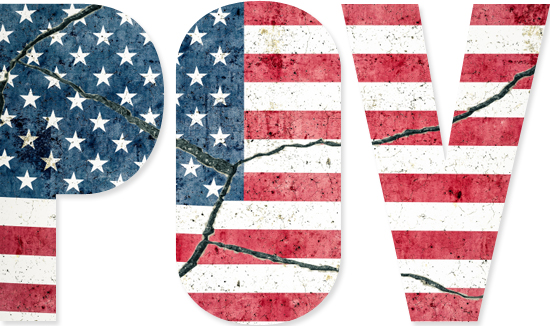POV: What’s So Exceptional about America?
We lead the world in unenviable ways

In the international community, there has been a dramatic increase in talk of American exceptionalism in intellectual circles. President Obama reiterated his belief in it during his September speech at the United Nations. The idea is not a recent phenomenon. Long before the post-World War II recognition worldwide that the United States had the strongest military and economy, the Founding Fathers believed theirs would not be just a nation among all nations, but a fundamentally distinguished nation.
This Thanksgiving week, as Americans focus on their blessings, the fact that people around the world increasingly question American exceptionalism may be sufficient to suggest its progressive downfall.
There seems to be a critical point that is almost always neglected or simply unnoticed. The word “exceptional” can be used in two different ways. On the one hand, American exceptionalism can mean that America is different, even unique, compared with other countries. On the other hand, it can be understood as American superiority over other countries, that somehow America is better. Almost all previous discussions of American exceptionalism have centered on the idea that America is superior to other nations. While there are certainly many benefits the United States can claim militarily, economically, and technologically, it may actually be falling behind other countries because of its supposed excellence.
First, in terms of military expenditure, spending more on the military does not make America any better than other countries, and could even be seen as a bad investment. According to a study by the Stockholm International Peace Research Institute, US military expenditure in 2012, at a shocking $682 billion, was higher than that of the next 11 countries combined, with China following at only $166 billion. The prodigious military budget also explains another exception: the United States has the world’s largest network of military bases overseas, with more than 700. As US military bases drastically increased after World War II, so too did military and CIA interventions. From the Korean War to the most recent Iraq war, the United States has engaged in countless overt and covert military campaigns, including continuous drone warfare in Somalia, Yemen, and Pakistan.
Of course, the United States was also the first country in the world to acquire nuclear weapons. Although many other countries followed with the acquisition of their own nuclear weapons, America to this day is exceptional in that it holds the title of the only country to have actually used a nuke. When weapons are developed, therefore, they will be used. As more money flows into the military, more weaponry will be developed and utilized, resulting in more wars and an increase in young American lives lost in distant lands.
American exceptionalism does not end with military prowess, however. Another issue worth mentioning is the US world standing in income inequality. Although the United States is the richest country in the world in terms of GDP, distribution of that wealth is by far one of the worst around the globe. According to data compiled by the Global Post using the Gini Index—the most commonly used metric to gauge a society’s income inequality—the United States has a higher degree of inequality than almost any other developed country. Among 34 nations, ranked equal to unequal, the United States was 32nd. Despite the significance of such an economic disparity, it seems all too often ignored here. Yale economist and Nobel laureate Robert Shiller says that “rising economic inequality in the United States…is the most important problem.” Because of economic inequality, poor social welfare services have also become a national concern.
Furthermore, recent revelations of illegal government surveillance of US citizens and 35 world leaders on a massive scale have only fueled the growing concern about American power exploitation. The misuse of the word exceptionalism as superiority seems to have prevailed again. Indeed, although America may be superior in areas like military power, national wealth, and spyware technology, that does not necessarily mean that America is better than other nations. Instead, where superiority actually exists, America seems only to be exploiting its power.
Attributing the skewed definition of exceptionalism to a particular country serves only to create further complications. Perhaps Obama—in his first overseas trip after winning the presidency—was right when he said, “I believe in American exceptionalism, just as I suspect that the Brits believe in British exceptionalism and the Greeks believe in Greek exceptionalism.” There is some truth to that.
Numan Aksoy (CAS’16) can be reached at nuaksoy@bu.edu.
“POV” is an opinion page that provides timely commentaries from students, faculty, and staff on a variety of issues: on-campus, local, state, national, or international. Anyone interested in submitting a piece, which should be about 700 words long, should contact Rich Barlow at barlowr@bu.edu. BU Today reserves the right to reject or edit submissions. The views expressed are solely those of the author and are not intended to represent the views of Boston University.
Comments & Discussion
Boston University moderates comments to facilitate an informed, substantive, civil conversation. Abusive, profane, self-promotional, misleading, incoherent or off-topic comments will be rejected. Moderators are staffed during regular business hours (EST) and can only accept comments written in English. Statistics or facts must include a citation or a link to the citation.